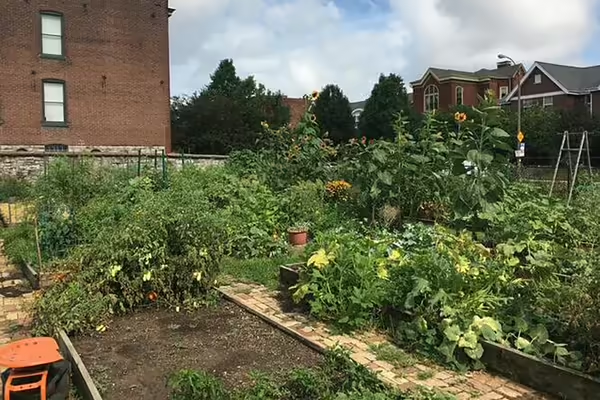
URBANA, Ill. — Urban agriculture has the potential to decentralize food supplies, provide environmental benefits like wildlife habitat, and mitigate environmental footprints, but researchers have identified knowledge gaps regarding both the benefits and risks of urban agriculture and the social processes of growing more food in urban areas.
In a new paper published in Nature Food, an interdisciplinary group of experts, including a researcher from the University of Illinois Urbana-Champaign, survey existing international studies on the benefits and downsides of urban agriculture and propose a framework for scaling it up.
Study co-author Chloe Wardropper, assistant professor in the Department of Natural Resources and Environmental Sciences in the College of Agricultural, Consumer and Environmental Sciences (ACES) at U. of I., says more than two-thirds of the global population is expected to live in urban areas by 2050, and the resilience of these areas may be compromised by their heavy reliance on imported food. Increasing urban agriculture could reinforce the sustainability and resilience of urban regions in the future, but Wardropper says there are open questions about how best to scale up and what environmental, health, and equity concerns would need to be addressed.
Read the full release from the College of Agricultural, Consumer & Environmental Sciences
Illinois Extension leads public outreach for University of Illinois by translating research into action plans that allow Illinois families, businesses, and community leaders to solve problems, make informed decisions, and adapt to changes and opportunities. Illinois Extension is part of the University of Illinois Urbana-Champaign College of Agricultural, Consumer and Environmental Sciences.